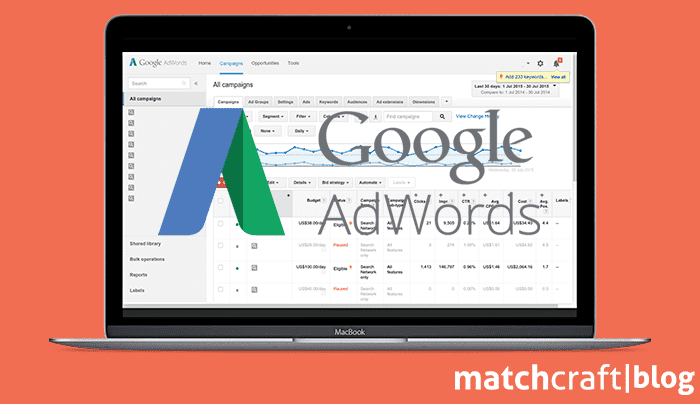Google AdWords is one of the top advertising systems in the world and its inception changed the way self-serve advertising works forever. When businesses use AdWords, they make about $2 for every $1 they spend. Currently, more than 1.2 million businesses use the service. Despite the popularity of AdWords, however, many marketers still have questions about how the platform works.
Here are answers to the five most common questions marketers ask:
1. How do landing page load times affect Google AdWords Quality Score?
According to Google, landing page experience is evaluated according to the following things:
- Relevance and usefulness of page content
- Trustworthiness of page content through transparency
- Ease of navigation via mobile and desktop
- Fast website and page loading time
When a landing page is irrelevant or slow to load, viewers will leave at higher rates. This tells Google that the landing page is poorly constructed, which results in a negative Ad Rank. Turning your landing page into an Accelerated Mobile Page (AMP) can help speed up your loading time and give viewers a better experience.
When pages boast quick load times and high levels of relevance, though, they’re likely to earn a higher Quality Score. This, in turn, creates a higher Ad Rank over time.
2. Modified Broad Match: What is it and how does it work?
Modified broad match was introduced by Google in 2010 and is one of three types of matches:
- Broad match
- Phrase match
- Exact match
Essentially, broad match displays ads for synonyms and word stems of synonyms.
For example, if you’ve targeted the keywords “running + shoes,” a broad match keyword might appear for “best running shoes, running sneakers, running tips,” and “shoes for running.”
While broad match has been met with mixed reviews over the past eight years (many marketers accuse the service of stealing advertising budgets and driving irrelevant traffic to an ad), the foundational intention of this software is to bring in the broadest possible audience for your ads.
Unfortunately, when you get ad impressions that don’t align with the original purpose of the search query, your click-through rate (CTR) can suffer. For more information on using broad match effectively, consult this tutorial.
3. What are negative keywords in Google AdWords?
From Google’s perspective, “negative keywords” are keywords that let the search engine know where you don’t want your ads to appear. This prevents you from wasting money on unwanted clicks and ensures that the traffic you’re getting is relevant and purposeful.
4. How do CPC bids affect Google AdWords Quality Score?
First of all, let’s define Quality Score. The Quality Score is generally considered to be a number that represents your account’s health. Therefore, high-Quality Scores produce better advertising results. The formula for determining CPC is as follows:
The ad rank of the advertiser who ranks immediately below you / Your Quality Score + 1 cent = Your Price or CPC
Because of this formula, it’s possible for advertisers who don’t pay as much as their competition to produce a higher ad rank. That being said, CPC bids don’t directly affect quality score and because expected CTRs are based predominantly on ads in similar positions, higher CPC bids will not improve your Quality Score.
5. Will low-volume keywords hurt my Google AdWords Quality Score?
Quality Scores are based on the ratio of clicks to impressions rather than the total number of clicks. Because of this, keywords that have low search volume won’t necessarily harm your Quality Score.
To bring low-volume keywords up to speed, ensure that the keyword fits seamlessly into your landing page and ad. Alternately, try incorporating the keyword into different versions of ad text.
When marketers know the answers to these five common AdWords questions, they’re better equipped to save time, money and effort in their PPC advertising.
